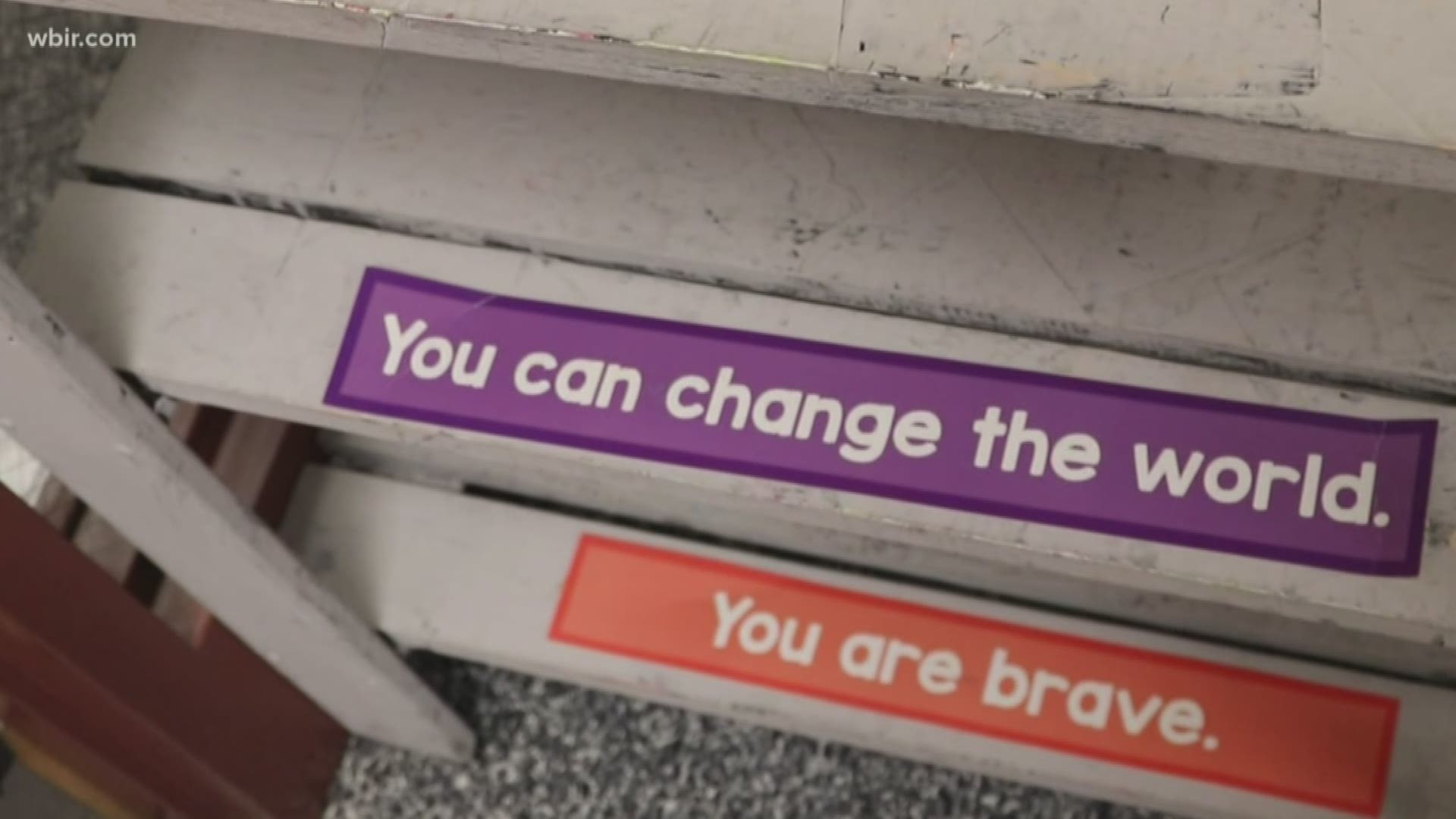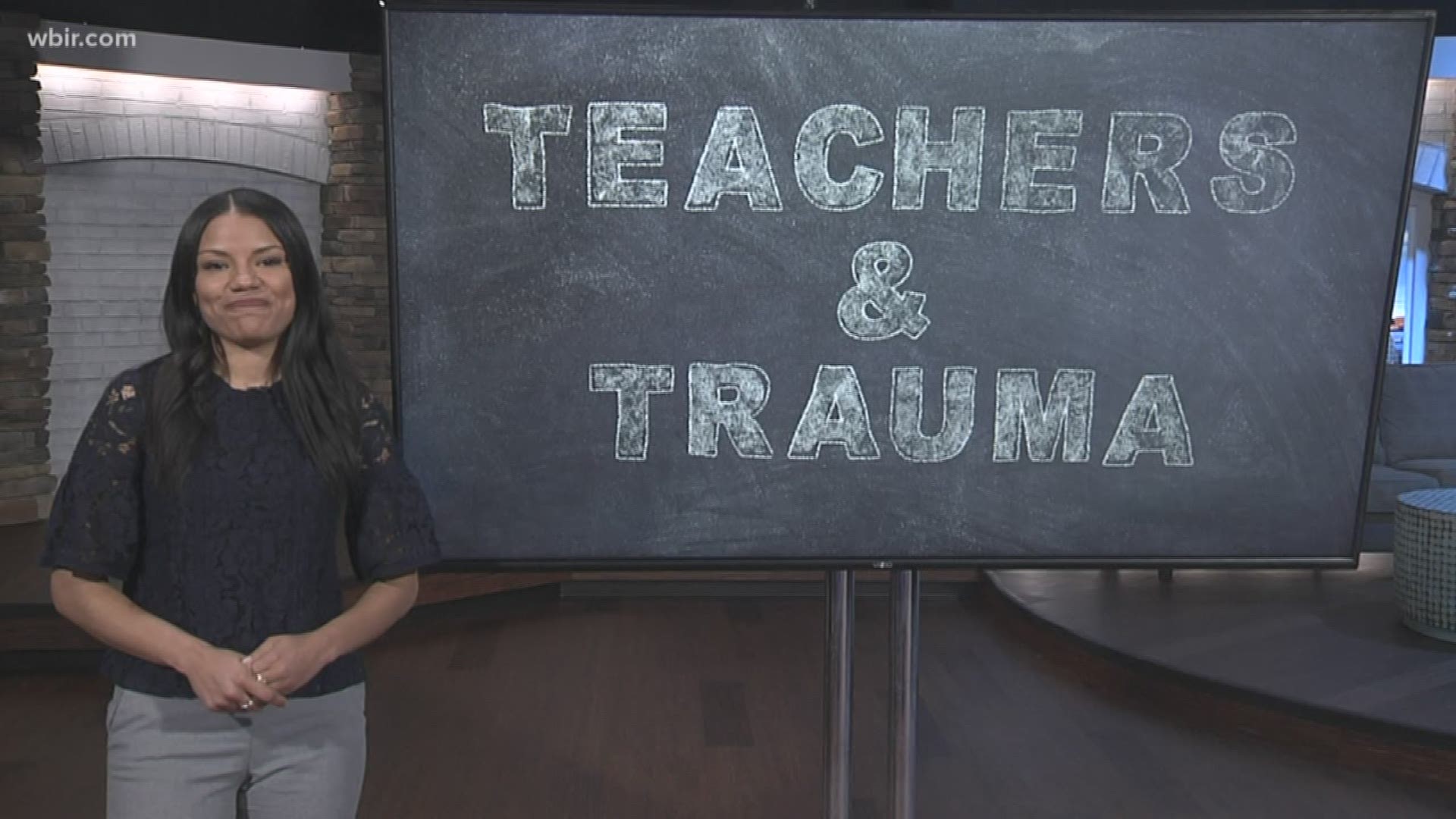KNOXVILLE, Tenn. — Melissa Bucks spent 36 years of her life teaching kindergarteners and first graders in Knox County. She just retired in May but is still involved in the classroom and in the community. After almost four decades in education, she can recall how trauma in the classroom changed over time and how it impacts some of our youngest children who are trying to learn.
“It was always different but there was always one child, two children or three children as time went on that was experiencing childhood trauma at home,” Buck said.
National data tracked and collected over the last several decades show Buck is not wrong.
The CDC reports across 25 different states 61% of adults reported experiencing at least one type of Adverse Childhood Experience and one in six reported more than one.
The center notes ACEs include exposure to physical, emotional, or sexual abuse; physical and emotional neglect; and witnessing violence, serious mental illness, or substance misuse in the home.
All things Buck has seen.
“Teachers have to fix things. We are fixers, but it was really hard to know what to do with each child,” she said.
One of her earliest memories was of a first grader.
“I’m thinking of a little girl who once told me that her parents did drugs," she said.
Over time, Buck had to take notes and eventually call the Department of Children's Services and while it had to be done that didn't make it easy.
“It was very stressful to know that the child was going to be taken out of the home, which was for the better but it still puts a heavy burden on a teacher,” Buck said. "Especially watching DCS come and remove a 6-year-old from the school while they had no idea what was happening to them."
Buck said this is not a new experience for teachers, many know this feeling all too well.
“More so in the last 10 years we saw a lot of fallout from the drug culture in our society,” she said.
However, the effects of childhood trauma weren't always as blatant. Buck said sometimes the smallest of moments told some of the most difficult stories.
“Children would come in and cower, and little things... like you would go to fix somebody’s hair, and they would pull back because of the physical violence they would see in the home,” she said.
RELATED: Childhood trauma resources
Child Trends research from the last few years shows what these experiences look like for children in Tennessee. In regards to the number of ACE's children experience, Tennessee hovers below the national average in all categories except the "three to eight" category.
The national average shows 10% of children experience that amount but in Tennessee, that number jumps up to 12%. Buck said that means teachers are working overtime to make sure young people get the resources they need.
“Because we not only have to teach these children, but we also have to help develop their emotional stability as well and their sense of safety at school,” she said.
In Child Trends' analysis of the types of adverse experiences children face, Tennessee ranks either above the national average or is the same.
Buck said this just shows combating childhood trauma is a worldwide problem that will take a village to fix.
“It wasn’t isolated to just one classroom, or one grade level, or one area so you have to have your teacher friends to get you through these situations,” she said.
The experience of trauma both inside and outside of the classroom is something schools across the country are working to understand. Cindy Sanford is the assistant principal at Dogwood Elementary and helps lead its own trauma program.
“It’s the classroom teacher where they are spending most of their time and where a lot of the learning is taking place so we want to make sure our teachers are equipped in every aspect of their daily lives,” she said.
Dogwood is considered a trauma-informed school through a state grant program. But that training isn't exclusive to counselors and members of the administration.
"We actually trained our entire staff, so close to 100 people,” Principal Alana Shelton-Lowe said. " And at other schools, our trauma team has gone out and done some initial training with them so that they have that same knowledge.”
According to Sanford, this kind of work is important not only because they love their kids but also because they know sometimes kids can face some tough challenges.
"We are talking about homelessness, we are talking about poverty, abuse and various types of abuse. Even that secondary trauma of watching a parent go through their trauma and how they are dealing with it or not having the support,” Sanford said.
A part of understanding the needs of students is also understanding the needs of teachers. Both Sanford and Shelton-Lowe believe teachers feel what their students feel too, which means as an administration they have to find ways to support educators as well.
“Our teachers totally adore our kids and they take on those problems and those traumas these students have and our teachers go home every night worrying about somebody,” Sanford said.
But as a school, they are working to figure out that balance as together.
“We did an activity with our staff with backpacks and one person will have that backpack and there's a lot of stuff in it and until we unpack it they are not going to learn,” Sanford said.
While working to heal childhood trauma is difficult work, educators stress they are willing to do whatever it takes to see children overcome and persevere.
"We really do love kids, we really want to see them be successful and we are willing to take extra training, we’re willing to do what we need to do to make sure our kids are successful,” Shelton-Lowe said.


